This was one of those weeks that reminded me of how I used to live.
I jumped on a plane Monday morning to Zurich to give a keynote in the evening at the University of St Gallen, then took a train down to Italy the next day to chair a big, all-day longevity conference in Milan. Then flew back to London on Thursday and checked out some apartments the daughter is thinking of buying, wrote up the conference for my elderberry friends and FORBES (see below), then caught the Wildlife Photographer of the Year at the Natural History Museum before going to the National Theatre to see Here We Are (which I don’t recommend).
Now, I’m tired. This isn’t how I want to pace my 60s.
How do you do it?
Unicredit's Longevity Economy Conference
What happens when big banks, two Nobel Laureates, global investors, and business innovators gather at Milan's Stock Exchange to discuss longevity's impacts? They start rethinking the future—not just of demographic trends, investment, and retirement, but of life itself. It was pretty heady stuff.
Surfing the Cycles
Today, I spent the morning at a yin yoga class, one of my favourite forms of restorative practice, gently tending to my energy levels. I walked there along the sunny banks of the Thames, enjoying the crowds of happy, multilingual tourists from every conceivable corner of the world and listening to the joyful spring birdsong emanating from every tree.
In my 60s, I no longer want to run around all over the planet every week. Which fights with my desire for impact and connecting with others interested in longevity. And my general dopamine addiction to all things new and happening.
What’s your balance? Has it changed?
The answer, for me, lies in asking, and constantly adjusting, what’s the right rhythm and pace that works at different ages. And never thinking that the one you’ve found is going to last forever.
And giving space in every place for something beyond work. I’ve already written about the vacation lighthouses I’ve sprinkled into my agenda every couple of months across the year. Opt-out weeks to focus on friends and/ or family in a much more dedicated and conscious way, like Puglia with the daughter earlier this month.
This time, I find it’s a joy to balance each work trip with a treat you keep. In Switzerland, it was art, in Italy, it was an old connection. And then some time to write it all down.
U. of St Gallen’s NEXT Programme (and Art Collection)
Half the challenge in turning down the tempo, is that there is so much interesting stuff exploding in the longevity space everywhere.
My first stop was to give an introductory keynote to the new class of St Gallen’s NEXT Programme, aimed at midlife professionals to help them think about their next chapters. Unlike the longer (6 months to a year) programmes I’ve written about elsewhere (at Harvard, Stanford and now also Oxford and Cambridge), St Gallen’s is a short 3-day session led by Sebastian Kernbach.
It was great, and he had brought back the alumni from the first 3 years, to mingle with the new class and share some lessons. While I think the long programmes have their advantages, and give you time to really explore, move and shift, I think there is a lot of room for the ease and accessibility of these short programmes too. It gets people woken up to the issues, and started in new thinking and framing.
Before my St Gallen session, I was able to join a guided tour of the University of St Gallen’s outstanding art collection. Led by the feisty and formidable Art Committee Chair, Yvette Sánchez, it was a very unexpected dose of pure delight. With works by Hans Arp, Georges Braque, Alexander Calder, Martin Disler, Alberto Giacometti, Joan Miró, Roman Signer, Gerhard Richter, Antoni Tàpies and many others, the University of St.Gallen has an art collection set in dedicated architecture like no other public university anywhere in the world.
And they show it like no other place. No big barriers, no little plaques with names, no obsequious reverence. Just world-class art that has been thoughtfully positioned in perfectly-lit spaces amongst students. It cohabits with young people, who then learn that art is a normal part of daily life. It also takes a lot of great art out of the crazy commercial art market, and lets it stay preserved in its original setting. Despite frantic phone calls from the Qataris who seem to be ready to spend anything to get their hands on the stuff.
This experience was a gift of a heady Swiss collection protected from the winds of fortune and money. How much our lives could use a similar kind of curation. To engage openly with the world, without getting hijacked by it.
The other gift was the train ride from Zurich to Milan. A glorious journey, down through the most amazing countryside. A few hours of quiet solitude to reflect on the people and art I met in St Gallen, and prepare for the next leg of the journey.
Making space between days and events is part of the pacing. I’m trying to ban the word ‘busy’ from my vocabulary, and instead find a steady, sustainable pace through. Learning how to not try and stuff the agenda, or make things ‘efficient’ is key. Like taking the train instead of a plane. Enjoying a quiet evening drink on my own after a day with hundreds of people, watching the sun set in Milan.
The 3 W’s - Work, Women & Welcoming Migrants
I was a little nervous about chairing this big, all-day conference, stuffed with some of the longevity world’s most famous academics, economists and business, including a couple of Nobel laureates for good measure. It’s so much easier to give a keynote speech. Especially if you do a lot of speaking. You end up knowing your speeches, and being able to play with an audience, knowing how to ask questions, interact, make them respond, and know where they will react. It’s fun, easy and usually impactful.
Facilitating is a whole other ballgame. You need to be super organised about a million details (not my strong point), remember everyone’s name (something I gave up even trying to do years ago), and be able to listen and summarise everyone’s points and arguments into something quick and sharp and easy to understand. But I gotta admit, this one was fun. It was just fascinating to hear and see so many great minds come together on longevity - hosted by a major Italian bank.
To really engage with the nitty gritty of how we are going to start designing everything - from pensions and savings systems to insurance policies - around longer lives and shifting demographics. To realise that Brazil is already trialing Robert Merton’s new idea of Retirement Security Bonds. That HINES real estate considers senior living to now be its core market. That TECHNOGYM can prove that healthy treatment of its own employees mean that they are way higher performing than national averages - and so way more productive.
Not to mention all the fascinating factoids that emerge as you listen to eight hours of conversations and panel debates:
that there will be a 2nd billion people over age 60 by 2050
that we’re going to have huge declines in GDP across the OECD countries if we don’t start adapting to ageing populations. This basically means 3 things - that I now call the 3 W’s - Work, Women & Welcoming Migrants.
WORK: we’ll need to work longer
WOMEN: we’ll need to further narrow the gender gap in labour forces
WELCOMING MIGRANTS: we need more migrants, not less! (Someone tell Nigel Farage)
that 50% of marriages in Italy are now among the 50+
that the least wealthy 50% of the US population only hold… 3% (sic!) of the country’s assets.
One of the personal joys of this conference was reconnecting with Claudia Parzani, a lawyer I met decades ago when I was working on gender issues in Italy. She was one of the founders of the Valore D women’s network in Italy (still going strong) and I gave a speech at one of their first events. Now, Claudia is Chairwoman of the Italian Stock Exchange. We’ve come a long way, baby.
It is so much fun at this age, to reconnect with people from your (near or distant) past, who remember something you did or said that marked them or helped nudge an issue forward. To revisit together the energy and efforts of a piece of the journey you travelled together.
It was fun to see the two Nobel Laureates at the conference, 80-year-old Richard Merton and 81-year-old Michael Spence, doing the same. Laughing and teasing each other about who was the best case study for a longevity conference. They have been working together and in parallel for decades, and are both such eloquent and passionate speakers, actively influencing the world with wisdom, grace and humour. Role models of the new Q4!
It’s also fun to start meeting in person people that subscribe to elderberries, as was the case for another couple of people in Milan. It gives a warm, human connection to big professional gatherings.
Now, I’m looking forward to a quieter week, with a bit of time to digest it all, and write it down. The better to share it with you all. And rest!
So, over to you.
Reading & Recommended
Have you heard about TACO? The acronym that went viral to describe how the financial markets now consider Trump’s approach to tariffs: ‘Trump Always Chickens Out.’ Started by FT journalist Robert Armstrong, it made it into the Oval Office with a journalist asking what Trump thought of the expression. He said it was a ‘very nasty question.’
Dr Laurie Marbas’s substack is a treasure trove of exceptionally well written health advice. It’s very rare to get this mix of medical expertise and writing skill. She’s also specialised on the idea of finding a sustainable rhythm in life. I discovered her with this piece about the 7 habits of vital ageing. Let me know what you think.


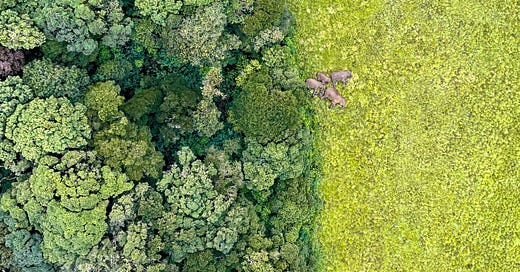




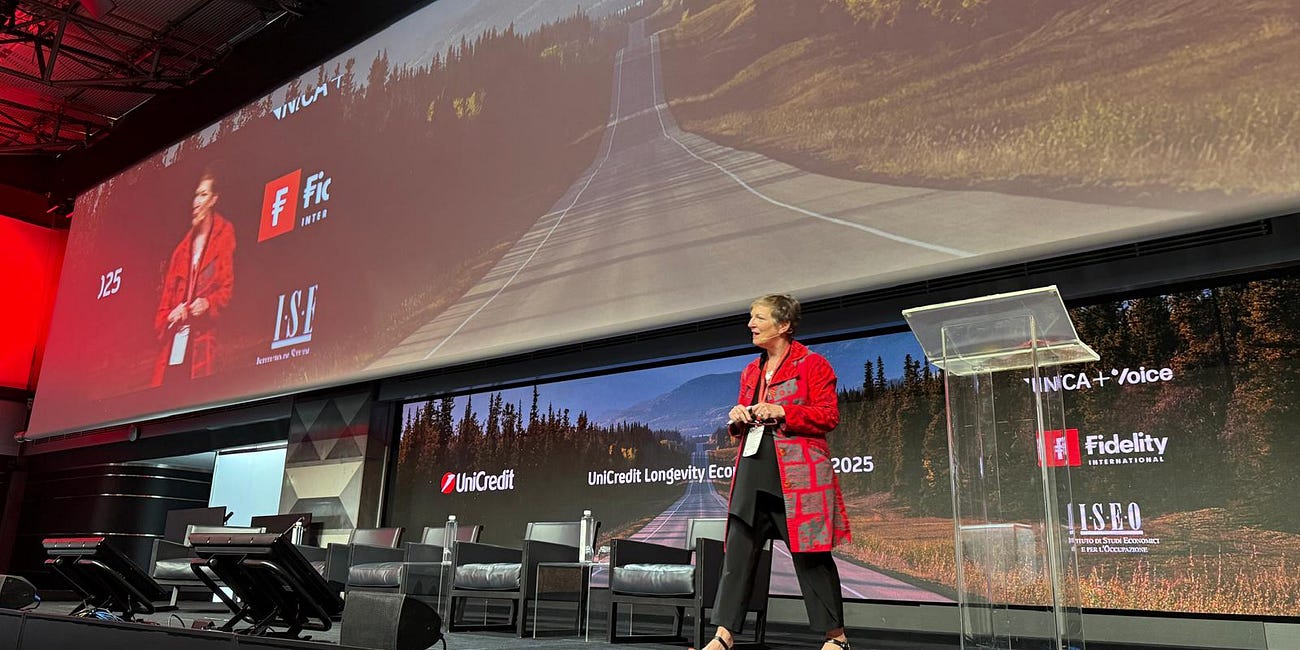

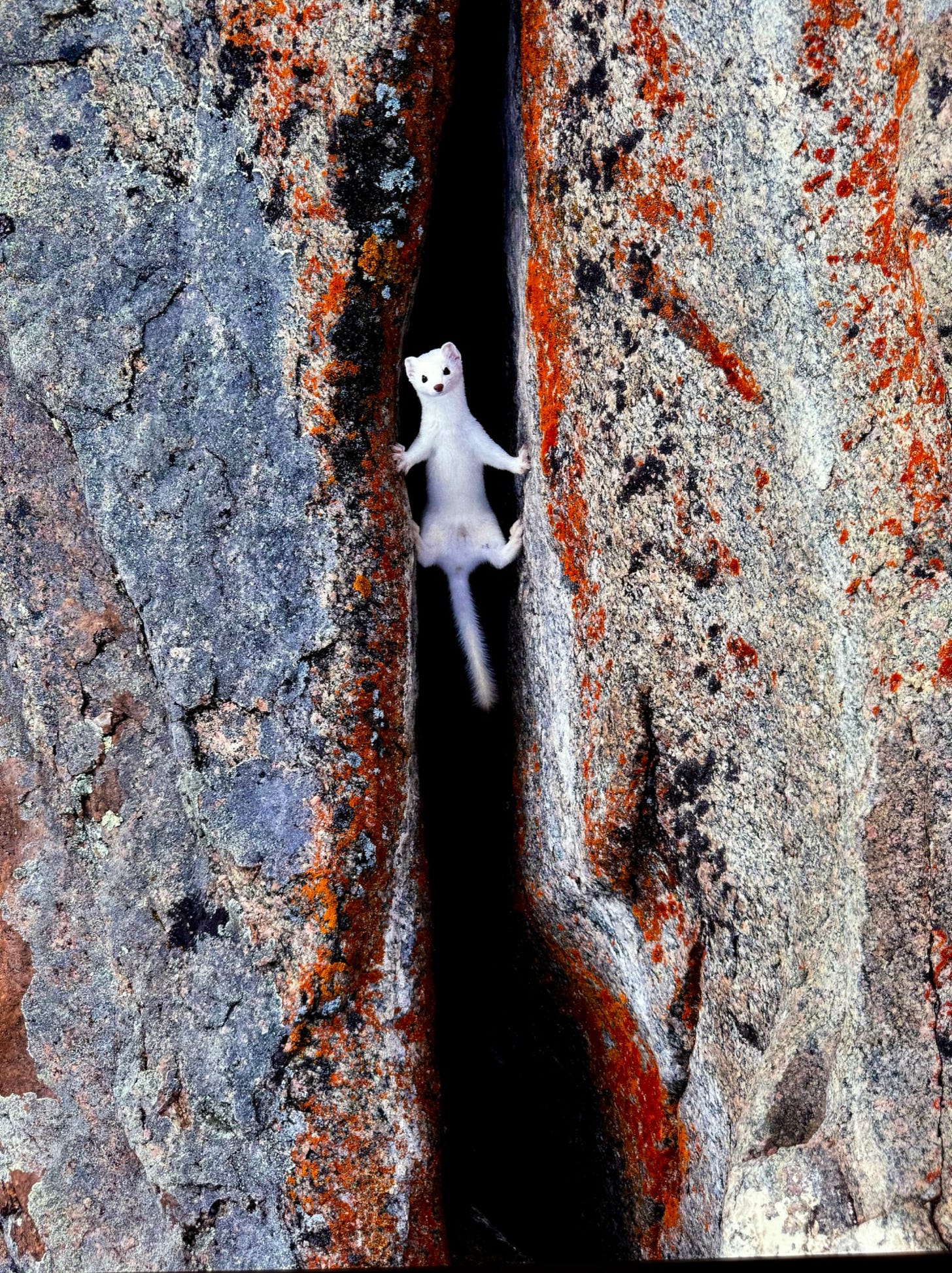

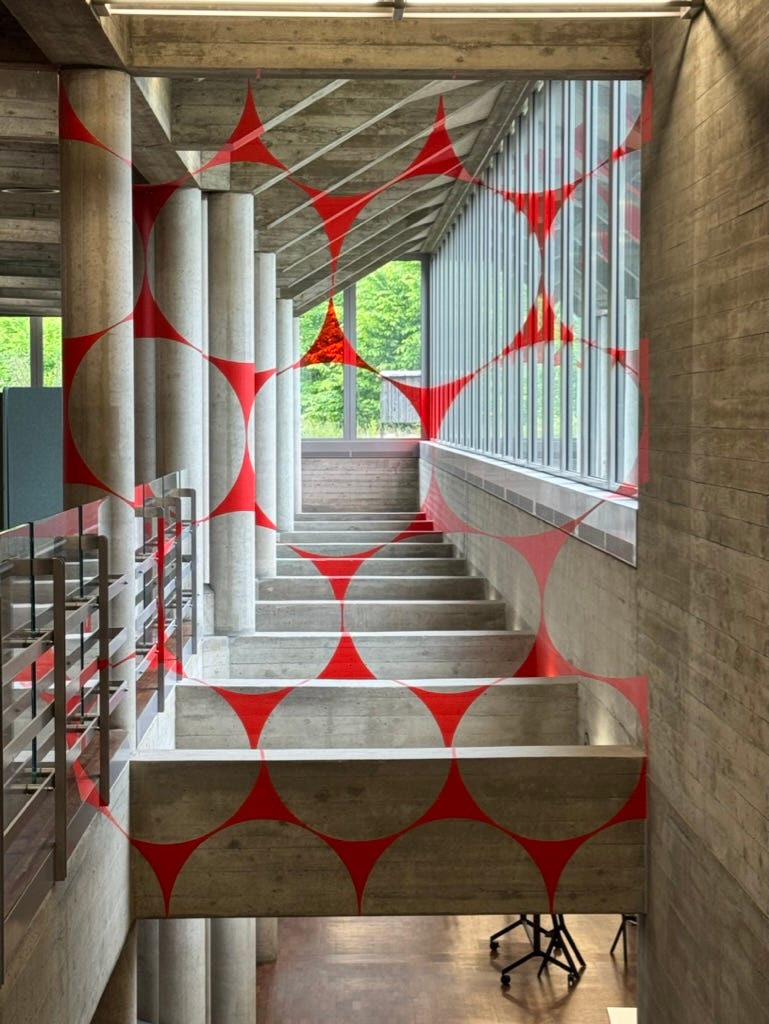
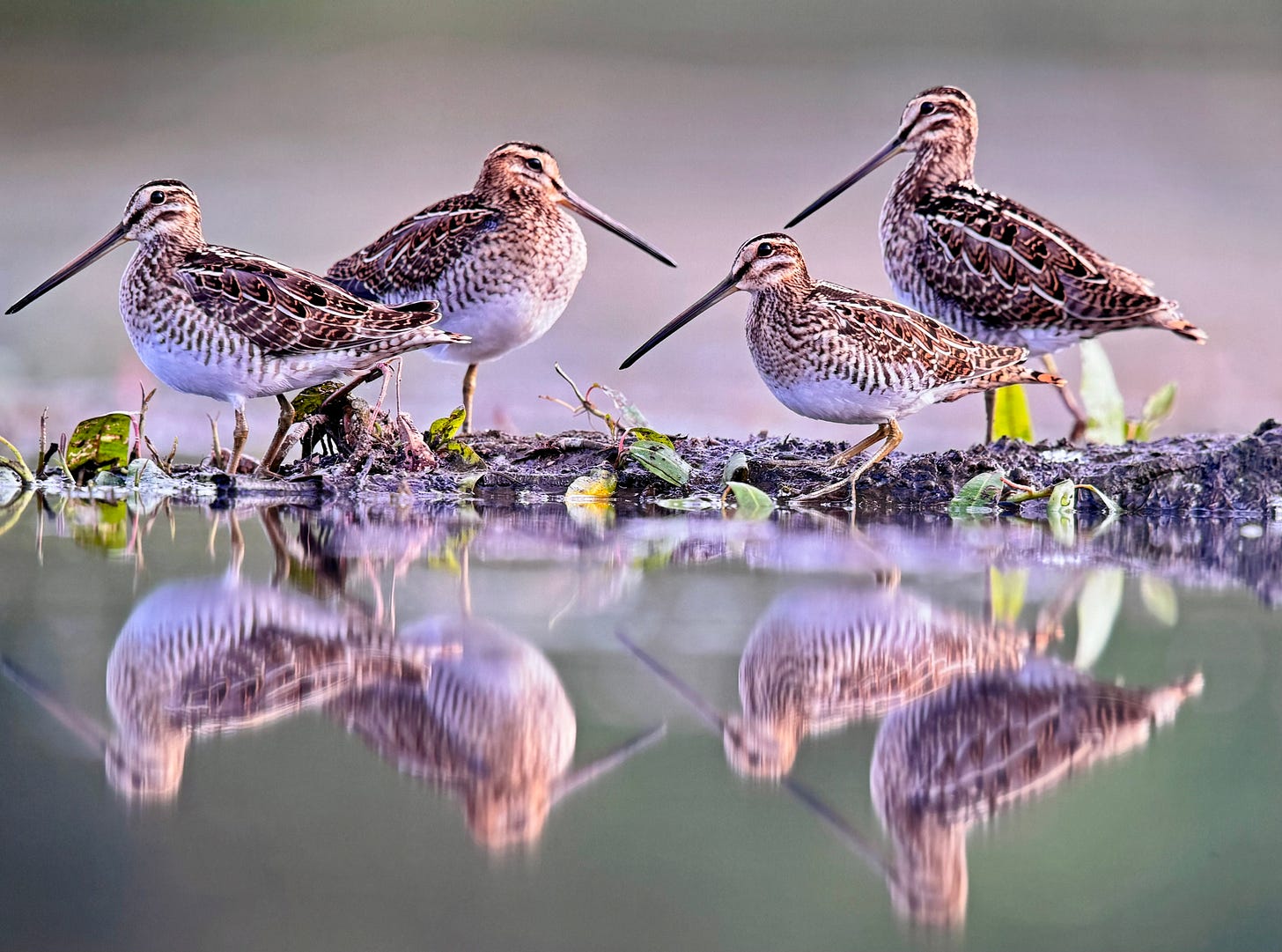




Now, I’m tired. This isn’t how I want to pace my 60s.. How do you do it?
For me Covid was the natural break. It is a change of pace, with more time to be. Listening inside – do I really want to do something? Whilst more money is always nice, I’m not saying yes if it will extend me.
I’m working on two books, one is a spin off from the first and I use the word rhythm a lot, It can ebb and flow, it can go fast and slow, but it needs to suit the person I am now, which of course can change.
I’m now also dealing with personal chores on a regular basis rather than letting them pile up – amazing how that is calming rather than to turn into a big thing!
I was genuinely surprised, and deeply inspired by the pace of your week, Avivah. At first, I thought: How does she still do all that in her 60s? But then it struck me… maybe that's exactly what motivates me too.
Not the speed but the presence. The sense of still being fully in the world, shaping conversations, showing up with purpose. Thank you for modeling what’s possible, not just for longevity but for meaning!